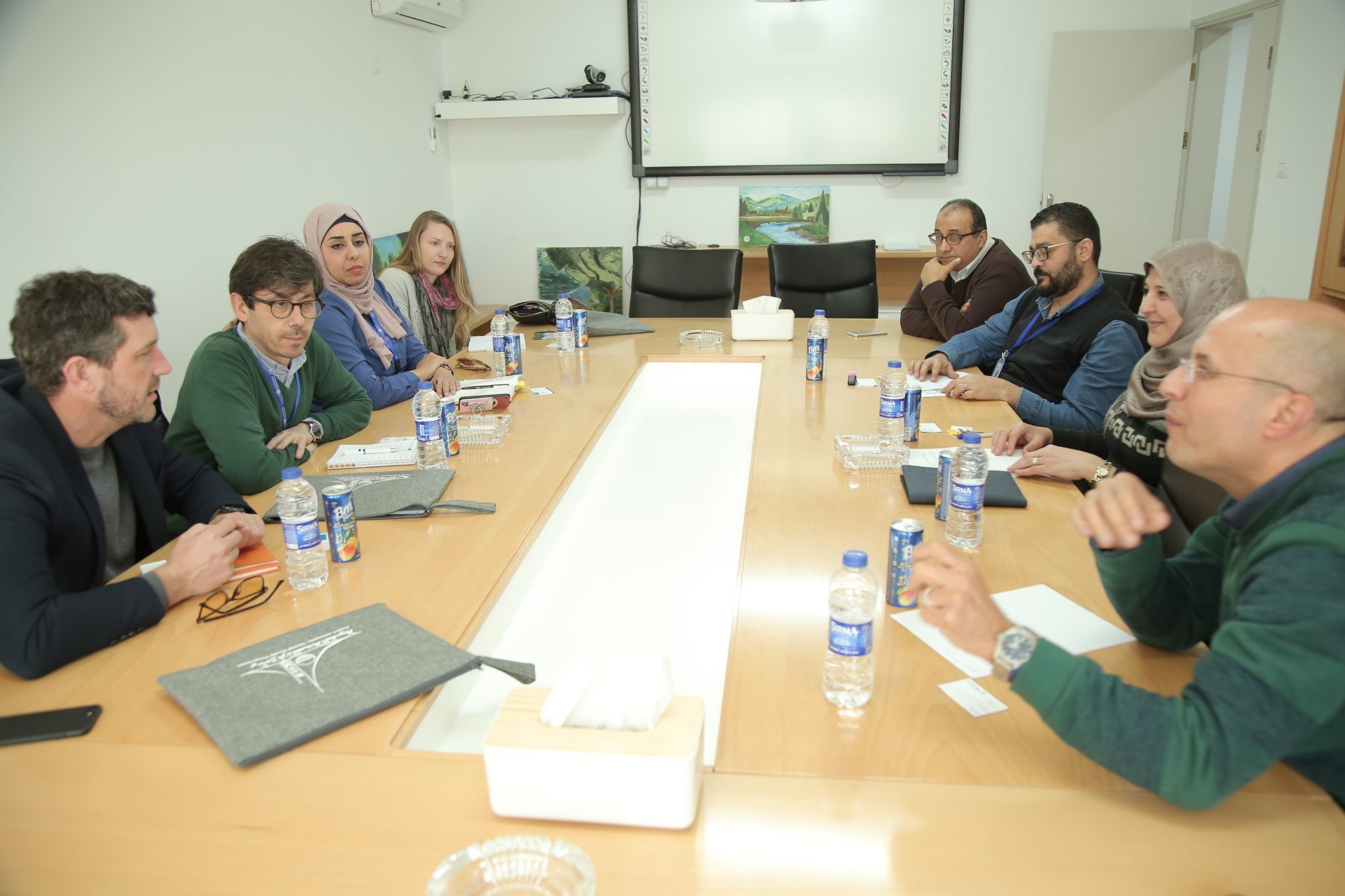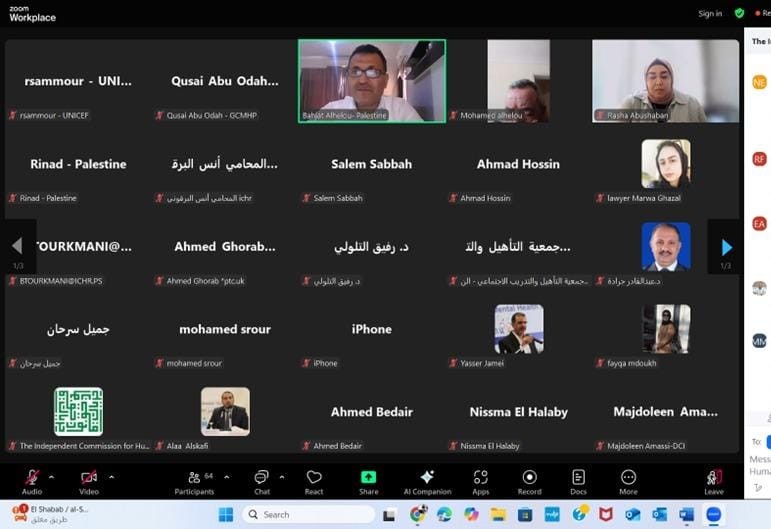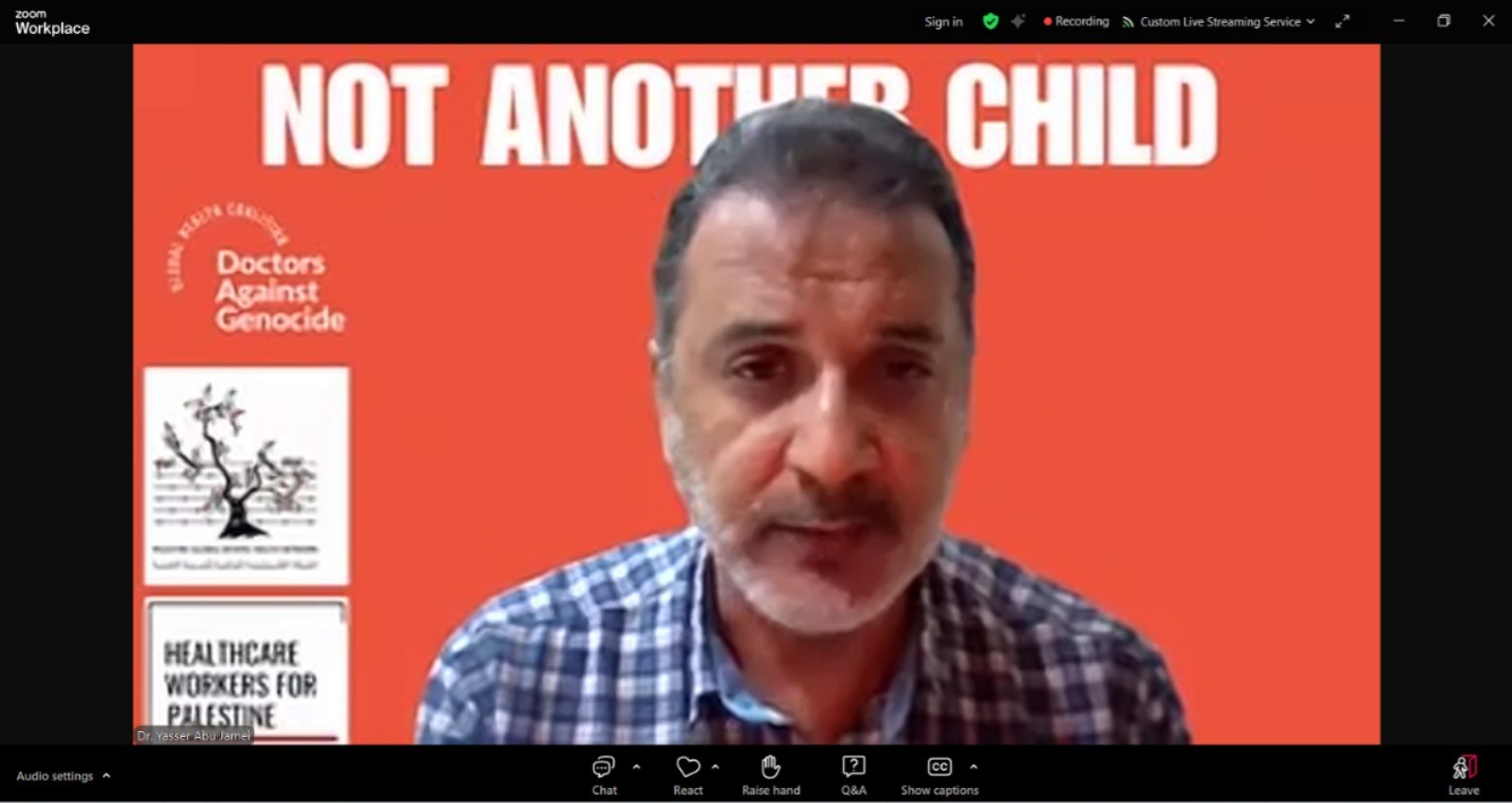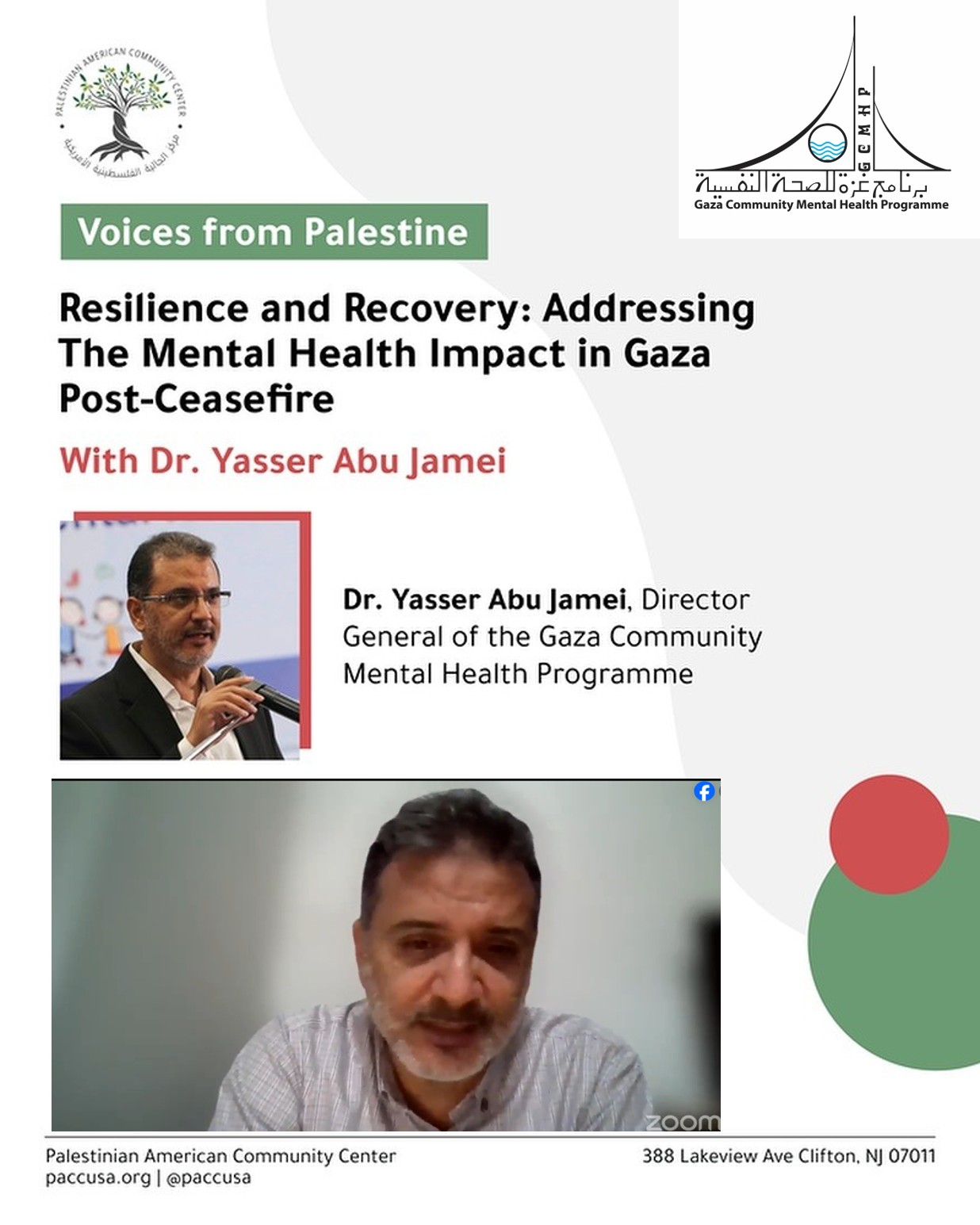
“OHCHR Delegation visits GCMHP”
A delegation from the Office of the United Nations High Commissioner for Human Rights (OHCHR) visited Gaza Community Mental Health Programme with the purpose of being oriented about the accessibility of the Palestinian community to mental health and psychosocial support, especially people with disabilities, not least women and girls.
The delegation, which included Neil Tobin, Head of Gaza OHCHR office, Rasha Abushaban, Human Rights Associate, Nikola Petroveski, Human Rights Officer (capacity building unit), and Katrine Gertz Schlundt, Human Rights Officer, was received by Mr Qusai Abu Odei, Director of External Relations and Resource Management Department; Rawaya Hamam, Head of Training and Scientific Research Department; Dr Akram; Dr Sami Oweida, Director of Gaza Community Centre; and Dr Nafee, Psychiatrist.
During the meeting the visiting delegation was briefed about the GCMHP provision of services and the tools used during the process, and how the current circumstance and the increase in level of the ongoing conflict have thrown extra challenges in the face of the Programme as a result of the huge demand on MH services.
Answering a question about whether women with disability, especially those with intellectual challenges, have enough access to mental health and psychosocial support services, Dr Oweida said: families generally tend to conceal their children who have disabilities, especially girls and women, because there is a stigma attached to such cases.
However, “we always make sure to integrate people with disability in our services, but as for the individuals who suffer from intellectual disabilities, we are not the side specialized in dealing with them. So, what we do, when a case is referred to us, is that we assess it and then refer it to the concerned side, usually governmental organizations because they are the service provider in such a situation.”
“But do you think that people do not have access to this service because it does not exist or because they are unwilling to use it?” Mr Tobin asked.
“For both reasons. The services provided for people with intellectual disability is limited and also people feel less confident to use the services because of the stigma attached to it,” Dr Oweida explained.
“The situation is even worse for girls with intellectual disability because the stigma it carries is as double as that with boys,” he added.
On his part Mr Abu Odei explained the role of GCMHP in raising the awareness of the community as part of its responsibility as a MH, but also as a human rights organization.
“But changing social stigmas takes patience and perseverance and I believe that we started to touch some tangible changes regarding many social misconceptions and stigmas. However, we believe that much work is still to be done,” Mr Abu Odei added.
A host of other topics regarding GCMHP work in the field of MH and Human rights we discussed and how the Programme has been making extra effort to meet the ever-increasing demand that resulted from the recent political and economic crises.
At the end of the meeting the delegation had a tour in GCMHP facilities and was familiarized with its activities.




Read Comments
Steven Rich
March 10, 2019Omnis iste natus error sit voluptatem accusantium nam libero tempore, cum soluta nobis est eligendi optiocumque nihil impedit quo minus id quod maxime.
Van Wimbilton
March 10, 2019Natus error sit voluptatem accusantium nam libero tempore, cum soluta nobis eligendi optio cumque nihil impedit quo minus id quod maxime.